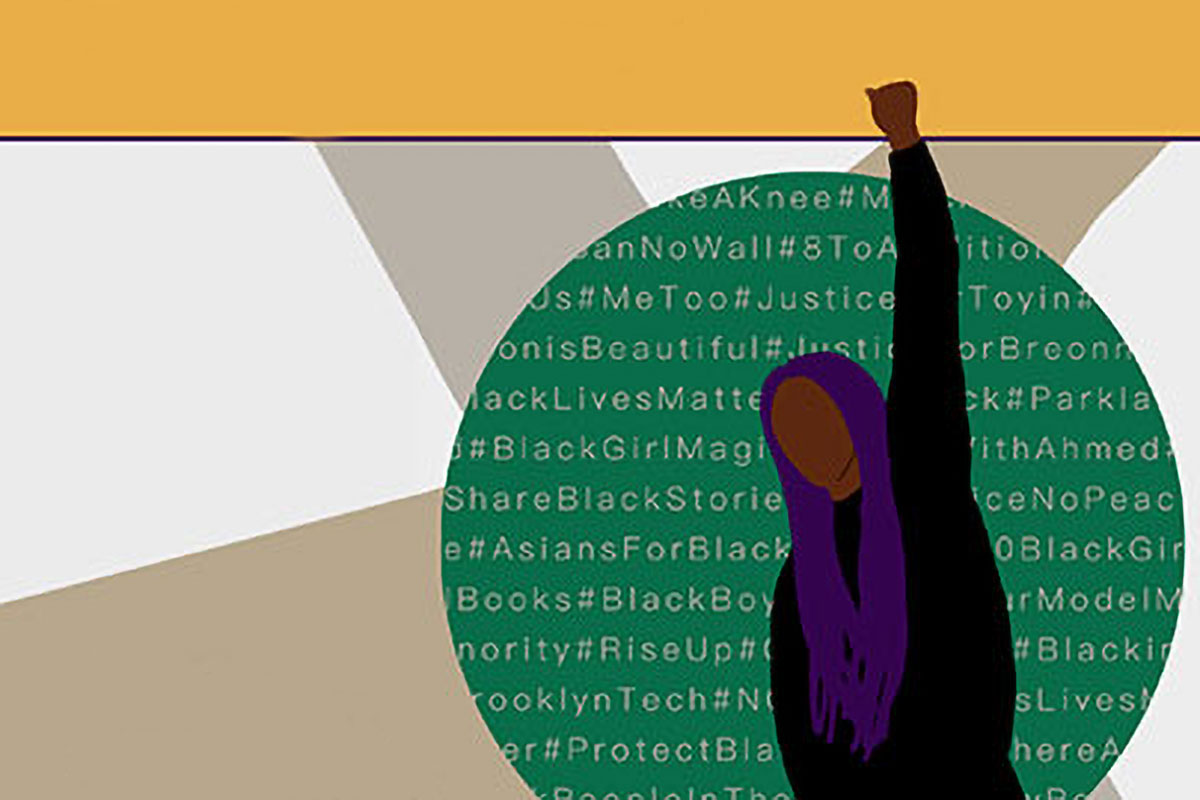For teachers to meaningfully engage with students in our complex world, they must leverage racial and digital literacy in the classroom. That is the case that TC’s Yolanda Sealey-Ruiz – Associate Professor of English Education – and former TC faculty member Detra Price-Dennis build throughout their widely lauded Advancing Racial Literacies in Teacher Education: Activism for Equity in Digital Spaces (2021).
For this work and the authors’ “commitment and dedication to advancing literacy, [and] the field of education,” the National Council of Teachers of English has bestowed the pair with the David H. Russell Award for Distinguished Research in the Teaching of English, one of NCTE’s highest honors. Additionally, the Initiative for Literacy in the Digital Age named Price-Dennis and Sealey-Ruiz as recipients of The Divergent Award for Excellence in Literacy in the Digital Age Research. The collaborators will be formally recognized for their honors in November at NCTE’s annual conference and in early 2023. [Editor's note: As of December 2022, Advancing Racial Literacies in Teacher Education has won the year's Edward B. Fry Book Award, issued by the Literacy Research Association.]

Detra Price-Dennis, Associate Professor of Communication, Media and Learning Technology Design, and Yolanda Sealey-Ruiz, Associate Professor of English Education. (Photos: TC Archives)
“Teachers need to do work around their own racial and digital literacy,” Sealey-Ruiz said. “They can’t afford to say, ‘I’m not technology-oriented.’ You may not be as quick as your students, but you have to build this literacy, because not only are students using technology every day, they’re learning about racial issues and becoming engaged in them though online spaces such as #BLM.”
In honor of Sealey-Ruiz and Price-Dennis’ recent accolades, find key takeaways from the groundbreaking Advancing Racial Literacies in Teacher Education: Activism for Equity in Digital Spaces below.
“Teachers who are able to engage their students successfully in the topic of race are most effective when they have engaged in self-exploration and honest assessments of their role in perpetuating racist ideas,” write Price-Dennis – now Professor of Teaching and Learning at Ohio State University – and Sealey-Ruiz in the book.
In addition to offering applicable guidance around teacher education and classroom tools, the TC authors offer a guide for conducting what Sealey-Ruiz has termed “the Archaeology of Self™ ” — a process in which educators examine their own biases and attitudes.
“Teaching is being open to other people’s stories. But you have to know your own story,” Sealey-Ruiz says. “If you’re not aware of who you are and what you bring to the classroom, and if you don’t think deeply about how issues of race, gender, class and religion live inside of you, you will just exact harm.”

In Advancing Racial Literacies in Teacher Education: Activism for Equity in Digital Spaces, Price-Dennis and Sealey-Ruiz lead “an interdisciplinary conversation that centers race in teaching and learning in a digitally driven world.” (Cover art courtesy of TC Press)
Racial literacy is tied to digital literacy because of the very-real world issues students are dealing with inside and outside of the classroom. Teachers are connecting with students “in a time where digital spaces have transformed the method by which citizens protest and speak back to the social injustices they witness in society,” write Price-Dennis and Sealey-Ruiz. The “merging [of] social action with social media in school spaces” reflects the reality that “kids are living through racism and oppression, and they want the tools to deal with it.”
An example of such teacher education unfolded during a course that Sealey-Ruiz and graduate assistant Shamari Reid taught in 2021, “Politics of Teaching English - Black Lives Matter: A Multimodal Exploration,” in which the Black Lives Matter movement served as a means “to both teach about the movement and engage teacher education students with literacy around digital activism.” With training in both racial and digital literacy, educators can “ensure that students are able to recognize, respond to, and counter racism, regardless of whether the interactions are face-to-face or in virtual spaces.”
Watch Yolanda Sealey-Ruiz’s recent TED Talk, “Truth, Love, & Racial Literacy.”
“Technology is not colorblind or race-neutral. Every device, platform, app, or software we use in our society was created by human beings who brought their understanding of humanity and race to their work,” write Price-Dennis and Sealey-Ruiz.
This is demonstrated in tech failures such as the long-standing shortcomings of photography in capturing non-white skin; the inaccuracy of facial recognition software when used on Black faces; and risk-assessment software used by law enforcement and banks.
In a course that Sealey-Ruiz and Price-Dennis taught last spring, the pair aimed to offer educators an opportunity to examine “racial literacy in digital contexts,” a topic the two expand upon in their book as well.
